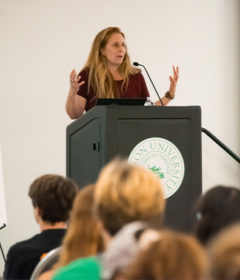Financial Friday: Balancing Your Bank Account


Balancing your bank account is important because banks make mistakes, and if the mistake is made against you and you do not give timely notification to the bank, they keep that money!
I was shorted $1,000 on my first paycheck at a new job some years back, but caught it by reconciling my bank account and I was able to get that money returned to me.
There is a bank reconciliation form that banks provide on the back of paper bank statements, but they assume no bank errors. A better bank reconciliation tool is found on the American Institute of CPA’s website.

Whether you reconcile your account online or on paper, here are a few tips to help make sure you can find — and correct — any errors.
- Write down or keep receipts for all of the deposits that you make or expect each month. When you look at your account, make sure that they are all there and that the amounts are correct.
- If you have a receipt for a deposit that doesn’t appear on your statement or in your account, then it may still be pending. However, if it has been several days you should contact the bank and make sure that the person paying you had enough money to cover their check.
- Know what you’ve spent by hanging on to receipts, including the ones from the ATM. At the end of the month compare withdrawals from your account to the receipts ensuring that both the name of the company and the amount agree.
- If you find a withdrawal for something you didn’t buy, let the bank know as soon as possible.
Reconcile your bank account at least monthly to protect every dollar you have.
Valrie Chambers, Ph.D., professor of accounting, and Betty Thorne, professor of statistics and the Christian R. Lindback Chair of Business Administration, write Financial Friday to bolster students’ financial wellness including preventing financial mistakes, safeguarding their assets and identity, and thinking critically about financial decisions.



